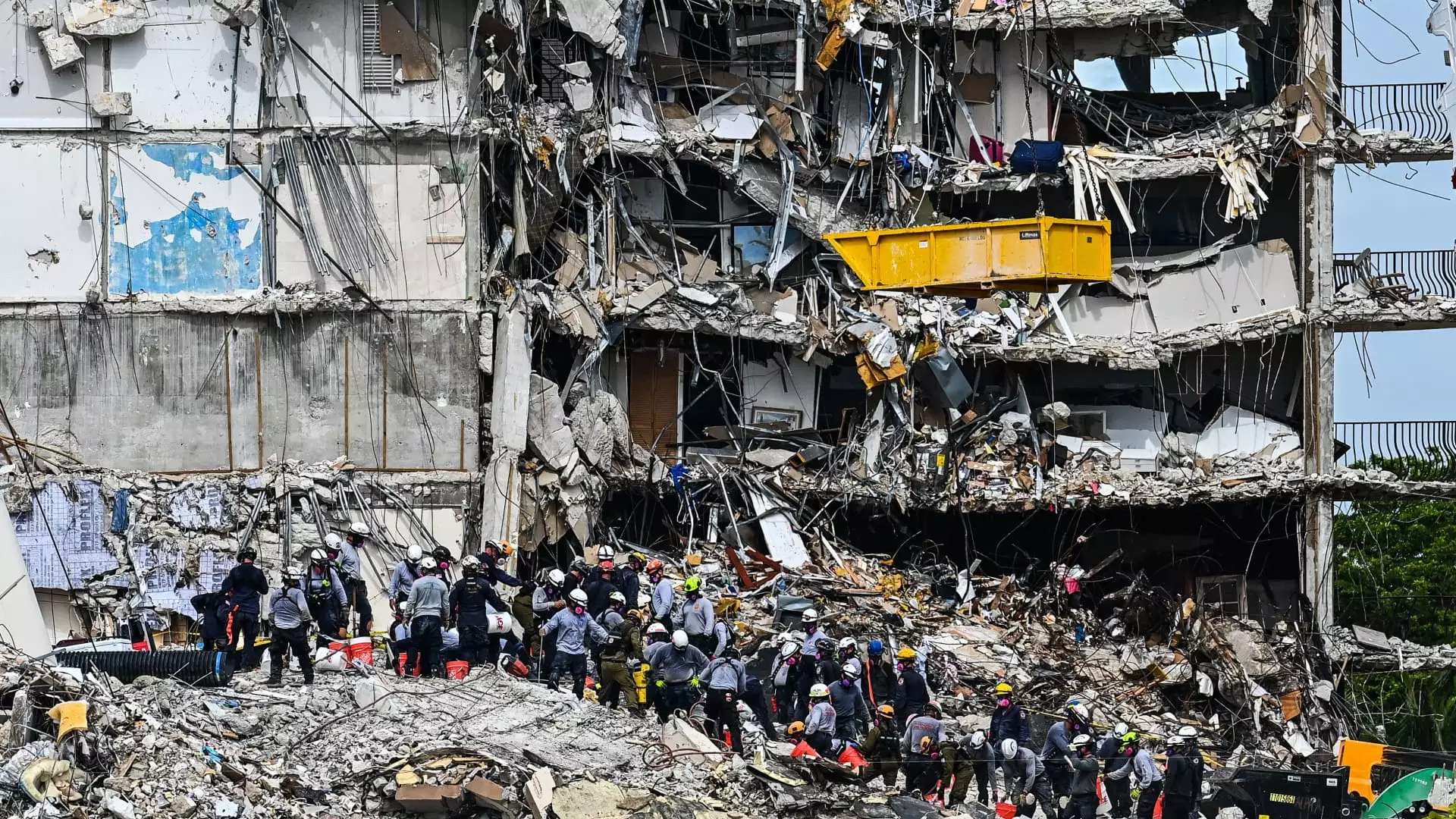The tragic collapse of a 12-story condominium building in Surfside, Florida, in June 2021, has cast a long shadow over the state’s real estate market. In response to this catastrophe, Florida’s lawmakers quickly enacted stringent regulations to avoid a repeat of such a disaster. However, as the new requirements roll into effect, many condominium owners find themselves caught in a financial whirlwind that threatens their stability and investment.
In the wake of the Surfside disaster, the Florida legislature mandated that all condominiums older than 30 years must undergo enhanced inspections and implement immediate repairs for structural safety. This regulation directly targets older buildings like the Champlain Towers, which highlighted the pressing need for accountability in building maintenance. As state officials aim to ensure resident safety, they have also placed the financial burden squarely on the shoulders of condo owners. With about one million condominium units across the state facing these rigorous new requirements, the repercussions are significant.
The crucial deadline for compliance with these inspections and subsequent repairs looms ahead, and the financial implications for condo owners are daunting. Many are discovering that the cost of complying with the new regulations can exceed hundreds of thousands of dollars per homeowner, which is especially concerning for many retirees who rely on fixed incomes. As the stakes escalate, it has prompted a stark division among owners—some are considering selling their units rather than dealing with these crushing expenses, while others are defaulting or searching for investors as potential saviors.
The Impact on the Real Estate Market
As the inspection and repair demands become clearer, the local real estate market is feeling the strain. According to Miami-based real estate analyst Peter Zalewski, we are witnessing what has been termed the “condo cliff.” In South Florida, where the markets of Miami-Dade, Broward, and Palm Beach intersect, a significant 75% of available condo listings are older than 30 years and are thus affected by the new regulations. As the typically busy summer selling season wanes, data indicates a marked downturn in sales—down 21.5% compared to the previous year, with prices also taking a hit, dropping by an average of 2.4%.
The unusual surge in active listings, reported at a staggering 60% increase over last year, signals what may be an impending crisis in the condo sector. With special assessments soaring into the hundreds of thousands, many owners find themselves cornered, facing a financial storm just as a new year approaches, when bills and assessments will arrive in earnest.
The fear of overwhelming financial strain has driven many condominium associations into dire straits, often resulting in temporary urgency overshadowed by the need for substantial commitment to ongoing upkeep. Reports indicate that repair costs have reached astronomically high figures—some associations have seen assessed costs hit upwards of $200,000 per owner, with total repair bills reaching as much as $15 million.
Local governance appears slow to react to this financial cliff, as Florida’s Governor Ron DeSantis called for a special session to address these pressing issues. Legislative leaders, however, opted to postpone any potential modifications to the law until early 2025, citing the need for greater clarity on the financial landscape. This hesitation may leave condo owners trapped in a precarious position, forced to make difficult choices without laser-focused guidance from lawmakers.
Searching for Solutions
Real estate agents like Stefania Ancona assert that the current pool of potential buyers is increasingly limited. Sellers are confronted with a choice: comply with expensive assessments or drastically reduce their asking prices. The prospect of investors stepping in poses a different route but can often lead to further complications, including the demolition of older buildings to pave the way for luxury developments.
While some properties may be bought out by opportunistic investors, many others may land in foreclosure or short sale scenarios. The sense of urgency in the real estate market underscores a critical period for both buyers and sellers—with uninformed buyers potentially making rushed decisions based on declining prices.
Florida’s condominium crisis represents a complex intersection of safety, financial strain, and legislative slow action. As the countdown to compliance draws near, many owners face an uncertain future, highlighting a significant turning point for the state’s real estate landscape. With its vulnerable market, the aftermath of the Surfside tragedy continues to resonate loudly through the halls of legislative buildings and the halls of aging condominiums alike.

